Property investing is a journey and goal setting plays the role of your compass here. Let's look at why this is so important.
Why are goals your guide?
When I first thought about property as an investment, I was in a fog. It seemed to me that the main thing was just to buy something and then we'll figure it out. But, as it turned out, without a clear understanding of your goals, you can easily get confused and lose money.
1. defining the strategy
Goals help you choose a strategy: do you want to earn passive rental income or aim to resell at a profit? It's like choosing between a relaxing holiday on the beach and an active tour in the mountains. Different goals - different approaches.
2. risk assessment
Knowing your goals allows you to better assess your risks. For example, if your goal is long-term investment, you may be prepared for temporary fluctuations in the market. If you want a quick profit, the risks will be different.
3. Financial planning
Goals help you plan your budget. If you know you want to buy a flat to rent out, you can calculate in advance how much you need to invest and how much income to expect. It's like planning a budget for a holiday - everything has to be accounted for.
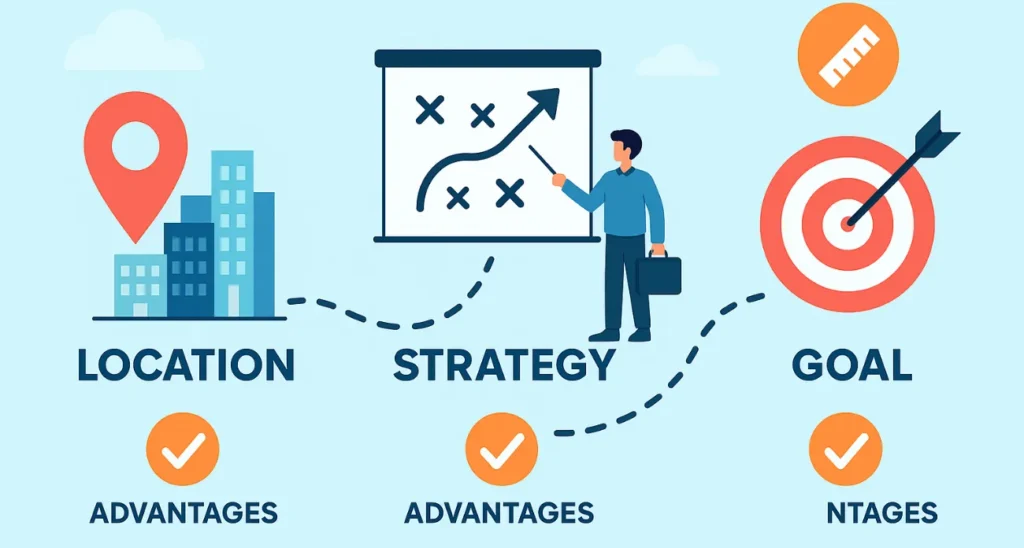
4. emotional stability
When your goals are clear, you are less likely to make emotional decisions. Investing is not always a smooth journey, and having a clear understanding of why you are doing it will help you not to panic in difficult moments.
5. Avoiding mistakes
Without clear goals, it's easy to fall into the trap of impulse buying or bad deals - you can spend a lot of time and effort and still not get the results you want.
So before you dive into the world of property, stop and think: what are your goals? This will help you not only choose the right path, but also enjoy the process.
Main objectives of property investment
When it comes to property as an investment, everyone has different reasons and desires. Let's understand what goals can be pursued and why they are important.
1. Passive income
Many people dream of an income that comes without daily effort. That's why renting is such a popular choice. Imagine owning a flat and having rent dripping into your account every month. It's like getting a paycheck without leaving your home.
- Example: Anna bought a small studio in the city centre. Now she receives a stable rental income, which covers the mortgage and is profitable.
2. Value growth
Other investors bet on increasing property values. They buy properties in developing areas, expecting their price to rise in a few years. This is like planting a tree and waiting for it to bear fruit.
- Interesting fact: According to OECDIn some countries, housing costs have risen by 10% over the past few years.
3. tax incentives
Investing in property can also offer tax advantages. For example, in some countries, owners of rental properties can write off repair and maintenance costs. It's like getting a discount on your favourite product.
4. Portfolio diversification
Real estate is a great way to diversify your investment portfolio. If you already have stocks or bonds, investing in real estate can be a solid backbone. It's like adding a new instrument to your financial orchestration.
5. Personal comfort
Some investors buy property with the intention of relocating or for a holiday. This is not only an investment, but also an opportunity to enjoy your own home. Imagine a house by the sea where you can escape from the hustle and bustle of the city.
Think about it: Which of these goals is closest to you? Perhaps this will help you take your first step into the world of property.
Property investing can be an exciting adventure if you know exactly what you want to achieve. Choose your goal and move on to new heights!
What types of property are suitable for different purposes
When it comes to choosing a property to invest in, it's important to understand which properties best suit your goals. Let's look at what types of property are suitable for different strategies.
1. passive income apartments
If your goal is passive income, apartments in popular neighbourhoods are an excellent choice. This is especially true for large cities and tourist centres.
- Example: In Tbilisi and Batumi, apartments can yield 6-9% per annum. It is like having a cash flow that does not stop.
2. Commercial property for value growth
For those focused on adding value, commercial property can be a goldmine. Offices and retail space in developing neighbourhoods often grow in value faster than residential properties.
3. residential buildings for tax benefits
If you're looking for tax advantages, investing in residential homes can provide an opportunity to write off repair and maintenance costs. It's like getting an extra bonus to your income.
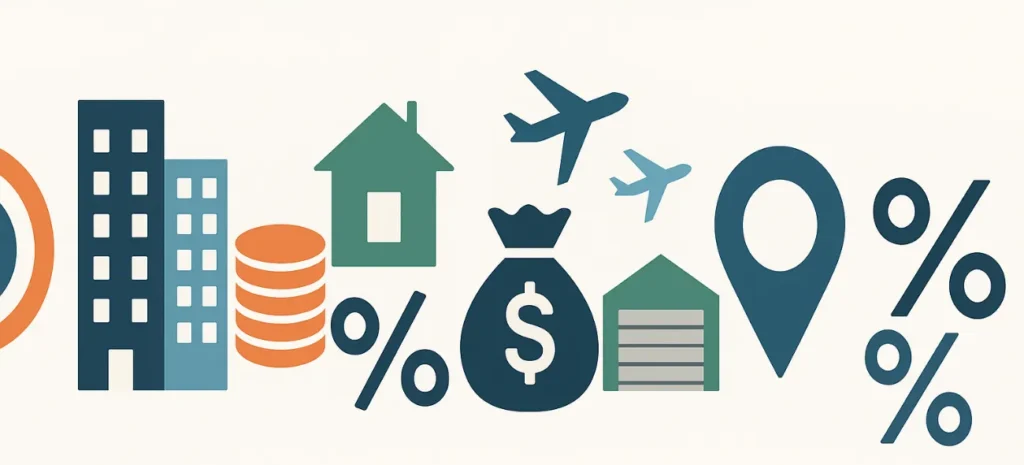
4. Property abroad for diversification
Investing in overseas property is a great way to diversify your portfolio. In the case of Georgia, this can be as follows flat by the sea in Batumi for renting and holidays, as well as apartments in Tbilisi for long-term residence or capital preservation.
- Tip: Be sure to research local laws and taxes before buying to avoid unexpected surprises.
5. New buildings for personal comfort
If your goal is to relocate or have a comfortable holiday home, new-build homes in modern complexes can be the perfect solution. It's like living in the future, enjoying all the modern conveniences.
Think about it: What type of property best suits your goals? This will help you narrow down your search and make a more informed choice.
How to choose an investment strategy: short term vs long term
Choosing between short-term and long-term investments is like choosing between a short-distance run and a marathon. Both options have their pros and cons, and it's important to understand what's right for you.
1. Short-term investments
Short-term strategies are usually aimed at quick profits. This can be reselling properties after minor renovations or buying during the construction phase and then selling them on completion.
- Benefits: Quick payback and the ability to adapt quickly to changes in the market.
- Disadvantages: High level of risk and the need for constant market monitoring.
Example:
Anton bought a flat at the excavation stage and sold it a year after construction was completed, making 20% profit. It's like playing a quick game and coming out a winner.
2. Long-term investments
Long-term strategies involve holding a property for a number of years in order to generate a steady income or increase in value.
- Benefits: Stability and the possibility of passive income.
- Disadvantages: Dependence on long-term market fluctuations and the need for more capital.
Example:
Maria bought a house to rent out and has had a stable income for five years. It's like planting a tree and enjoying its fruit for years.
3. How to make a choice?
Evaluate your goals and resources:
- Financial Capabilities: If you're on a tight budget, short-term investments may be more attractive.
- Risk Tolerance: If you are prepared for risk and rapidly changing conditions, short-term may be your choice.
- Time and effort: Long-term investments require less time to manage, which is suitable for busy people.
Analyse the market:
- Use resources such as. Statistato estimate the returns in different periods.
- Research local trends and forecasts to make an informed choice.
Think about it: Which approach is closer to your heart and capabilities? This will help you choose a strategy that will not only be profitable but also enjoyable.
How to calculate the potential profitability of an object
When you are on the verge of investing in property, it is important to understand how to calculate the potential returns. Let's understand how to do this.
1. Determine the expected income
The first step is to figure out how much you will earn. If you plan to rent out the property, research the market to find out the average rent in your area.
- Example: You have bought a flat in the city centre and plan to rent it out for 50,000 roubles a month. This is your starting point.
2. Take into account all costs
It's important not to forget about expenses that can reduce your profits.
- Mortgage: If you've taken out a loan, include the monthly payments.
- Utilities and taxes: Find out how much you will pay for the service.
- Repairs and maintenance: Set aside a reserve for unexpected expenses.
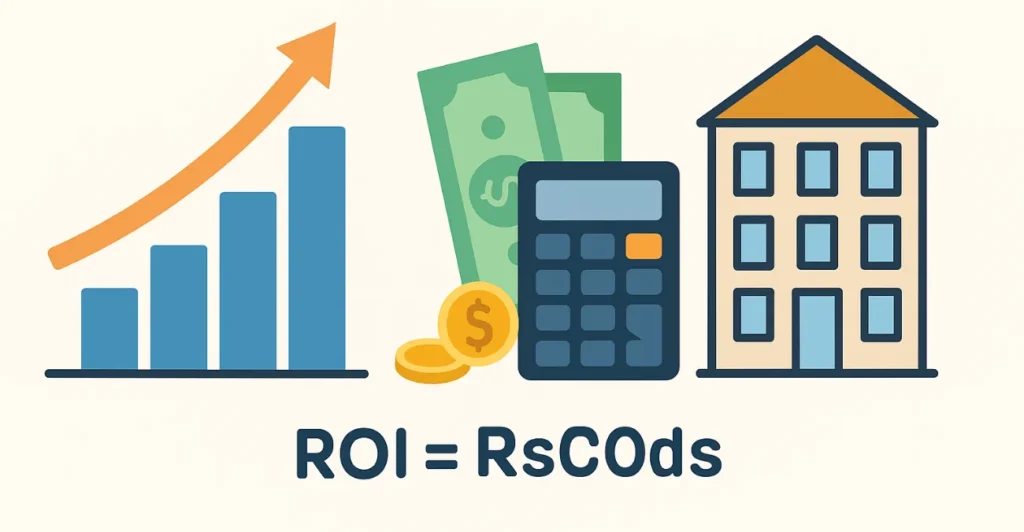
3. Calculation of net income
Subtract all expenses from your expected income to get your net income. This is your actual profit.
- Formula: Net income = Expected income - Expenses
4. determine the ROI (return on investment)
ROI is a metric that helps you understand how profitable your investment is. It is like evaluating the success of your journey.
- Formula: ROI = (Net income / Cost of facility) x 100%
- Example: If your net income is R600,000 per year and the cost of the property is R6,000,000, your ROI will be 10%.
5. Use online calculators
For more accurate calculations, you can use online tools such as Calculator.net. They will help you take into account all the nuances and get results quickly.
Calculating returns is a key step in making an investment decision. Approach it wisely and you will be able to avoid unpleasant surprises and make your investment successful.
How not to confuse buying for yourself with investing
When it comes to property, it's easy to get confused between buying for yourself and investing. It's like choosing between a cosy home and a financial asset. Let's understand how to draw the line.
1. define your priorities
The first step is to understand whether comfort or income is more important to you. Buying for yourself most often involves personal preferences such as location, amenities and style.
- Example: You want a home with an ocean view, even if it's not the most favourable from an investment standpoint. It's your personal desire.
2. analyse financial performance
Investment property is evaluated in terms of yield and growth in value. Numbers are important here, not emotions.
- Yield: Calculate potential rental or resale income.
- Value Growth: Study the market to understand how the price of the property may change.
3. avoid emotional decisions
When buying for yourself, it's easy to get emotional. Investments require equanimity and calculation. It's like choosing a car: for yourself you choose comfort, for business you choose reliability and economy.
- Tip: Before making a decision, ask yourself the question, "Will it be beneficial?"
4. Consider long-term goals
Buying for yourself may be related to personal plans, such as starting a family or relocating. Investments involve a long-term strategy and market analysis.
5. Consult experts
If you are in doubt, consult a professional. He or she will help you evaluate the property from the investment point of view and avoid mistakes.
Think about it: What role should property play in your life? This will help you make an informed choice and avoid confusion.
Mistakes in setting an investment objective
When it comes to property investing, setting a clear goal is half the battle. However, many beginners make mistakes that can cost them time and money. Let's look at some of the most common ones.
1. Too general an objective
One of the most common mistakes is a lack of specificity. The goal of "making money in property" is too vague. It's like saying you want to go on holiday, but you don't know where exactly to go.
- Tip: State the goal specifically, "Receive 10% per annum from renting a flat in the city centre".
2. Insufficient risk assessment
Many investors focus only on the potential profits, forgetting the risks. This is like going on a hike without preparation and equipment.
3. ignoring personal circumstances
Investing without considering personal financial and life circumstances can lead to problems. For example, buying a property with a high mortgage can be a burden if you lose your job.
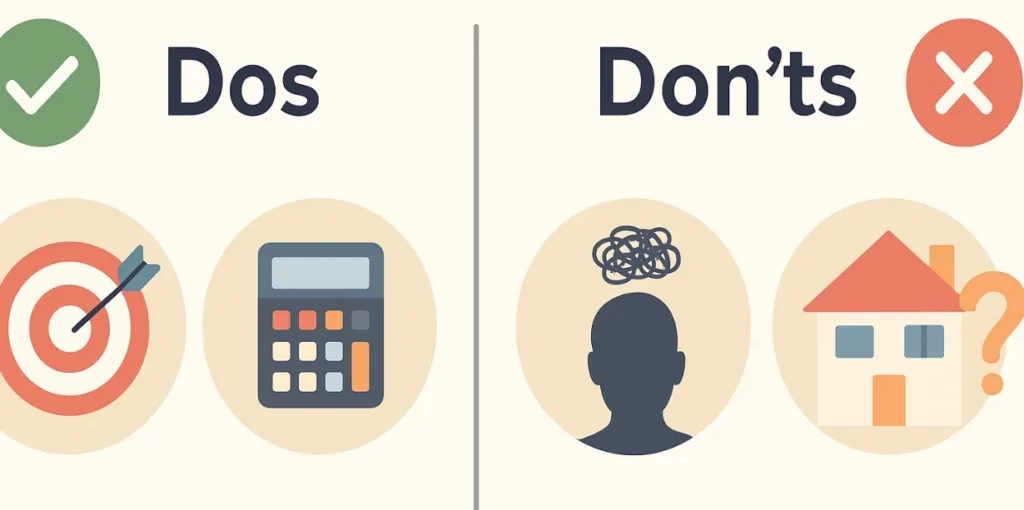
4. Chasing quick profits
The desire to make a quick buck can lead to hasty decisions. It's like trying to win the lottery without understanding the rules of the game.
- Tip: Consider long-term strategies that may be more stable and secure.
5. Lack of an exit plan
Many investors don't think about how and when they will sell the property.
- Tip: Determine in advance under what conditions you would be willing to sell the property.
Avoid these mistakes and your property investment will be more successful and profitable. Be careful and plan each step carefully.
Case studies: how different goals lead to different results
Stories from real people often help you better understand how different investment goals can lead to very different results. Let's look at a few examples.
1. Case: Passive rental income
Anna has always dreamed of a stable passive income. She bought a small flat in a tourist centre and started renting it out through popular platforms.
- Result: A year later, Anna not only covered all of her mortgage costs, but also began earning a steady income that allowed her to travel and not worry about finances. .
2. Case: Value growth
Mark decided to invest in a developing neighbourhood with the expectation of rising values. He bought several commercial premises during the construction phase.
- Result: After five years, the area became a popular business centre and property values increased by 40%. Mark sold the properties at a big profit. It's like winning a long-term game by making the right bet.
3. Case: Wrong choice
Lucy decided to invest in property to make a quick buck. She bought a flat in an old building, hoping for a quick resale.
- Result: Due to the poor condition of the house and the lack of demand in the market, Lucy was unable to sell the flat for two years and suffered losses. It's like falling into a trap without researching the area.
4. Case: Portfolio diversification
Oliver, an experienced investor, decided to invest in overseas property to diversify. He bought a flat in Spain, where he planned to rent it out to tourists.
- Result: Thanks to a steady stream of tourists, Oliver earns his income in euros, which allows him to compensate for fluctuations in the local market. It's like having a safety cushion in another currency.
5. Case: Personal comfort
Chloe bought a lakeside cottage for a family holiday. She did not consider it as an investment, but after a few years the value of the land increased significantly.
- Result: Although the original goal was personal, Chloe got the opportunity to sell the house at a big profit. It's like accidentally finding treasure in your own backyard.
Think about it: Which of these stories is closer to you? Perhaps they will help you to formulate your goals and avoid mistakes.
Every story is unique and the results depend on the goals you set and the decisions you make. Learn from the examples and approach investing consciously.
How to choose an object for a specific purpose: checklist
Choosing a property is a search that should perfectly suit your goals and needs. To make sure you don't make a mistake, use this checklist.
1. define the purpose
Before you start your search, clearly articulate what you want to achieve. This will become your reference point.
- Example: If you're looking for passive income, the goal might sound something like "earn a steady rental income."
2. research the market
Conduct market research to understand which facilities are most in demand and most profitable in your area.
- Tip: Use resources such as. Numbeo to analyse prices and returns.
3. Assess the location
Location is one of the keys to success. Think about which neighbourhoods fit your goal.
- Example: For tourist rentals, choose popular tourist areas or city centres.
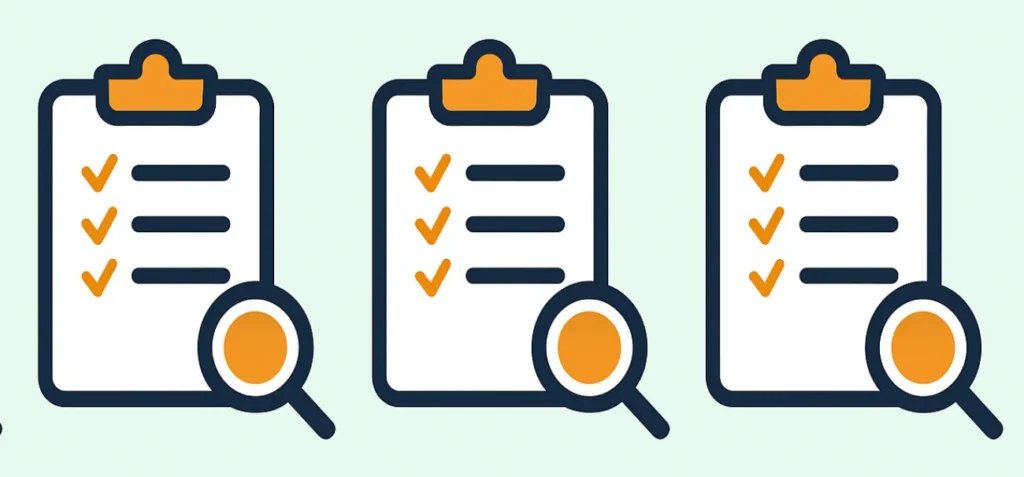
4. Check the condition of the object
Assess the condition of the property to avoid unexpected repair costs. It's like checking a car before you buy it.
- Tip: Engage a professional to assess the condition of the building and possible repair costs.
5. Analyse financial performance
Calculate the potential income, expenses and ROI. This will help you understand how profitable the investment will be.
- Tool: Use online calculators such as Calculator.netto simplify the calculations.
6. Check legal clearance
Make sure the property has no legal restrictions or encumbrances. It's like making sure the house has no hidden problems.
- Tip: Consult a lawyer to avoid unpleasant surprises.
7. Consider additional tools
If you are looking at overseas markets, use analytical tools for global analysis.
Following this checklist will help you choose the property that best suits your investment goals and expectations. Be careful and consider each step carefully.
Conclusion
Property investing is an exciting and multi-faceted journey. Defining goals, choosing a strategy and the right property are all key steps on the road to a successful investment. As with any business, preparation and awareness are important.
Why it's important.
Understanding your goals and following a clear plan will help you avoid common mistakes and maximise your profits. Whether you're looking to generate passive income, build capital or simply provide a comfortable place to live, the right strategy will be your guide.
What's the next step?
If you are ready to take the first step, start by defining your goals. Analyse the market and assess your options. Remember that every successful investor was once a beginner. The main thing is to start acting.
Don't miss the opportunity to make your investment a success. Consult our experts for personalised advice and support every step of the way.






